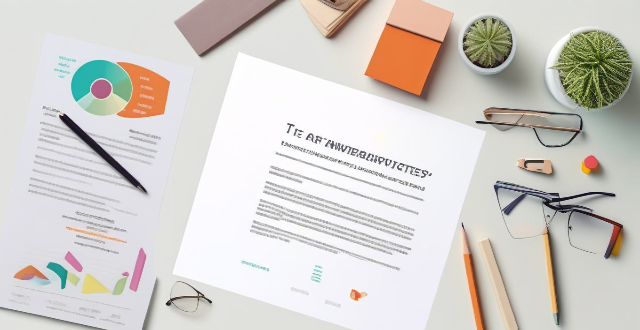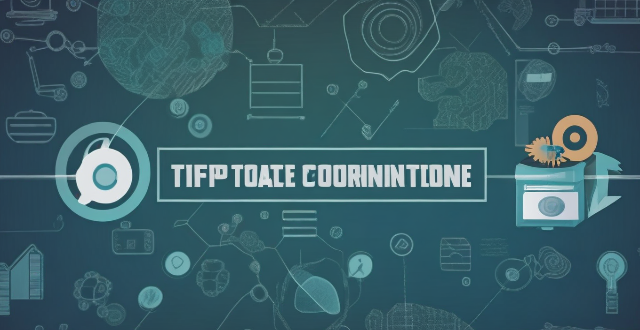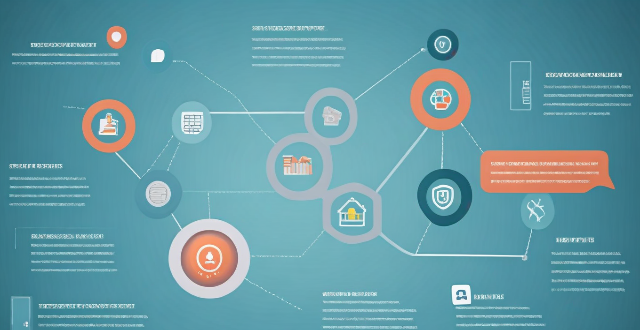Refund Company

Are there any advantages to using a tax refund service company instead of doing it myself ?
Using a tax refund service company offers several advantages, including time-saving, accuracy, expertise, convenience, and peace of mind. These services can help maximize refunds or minimize tax liability by ensuring accurate tax preparation and staying up-to-date with changing tax laws and regulations.

Is there a minimum purchase amount to qualify for a tax refund ?
The minimum purchase amount for tax refunds varies by country and product type. Other requirements include timeline, product type, receipts, and departure within a specific time frame. To claim a refund, save receipts, fill out forms, visit a customs office, submit documentation, and wait for the refund to be processed.

What is a tax refund for shopping ?
The article provides a comprehensive guide on what a tax refund for shopping is, how it works, its benefits, and tips for successful claims. It explains that a tax refund for shopping allows tourists to reclaim some of the Value Added Tax (VAT) they have paid on purchases made during their trip abroad. The process involves keeping receipts, meeting minimum purchase amounts, obtaining tax-free forms, customs declaration, and claiming refunds. The article also highlights the benefits of tax refunds, including savings, additional discounts, and convenience, and offers tips for successful claims such as planning ahead, organizing documents, allowing enough time, and double-checking amounts.

How does the tax refund process work in Europe ?
The Tax Refund Process in Europe is a guide for tourists on how to get a Value Added Tax (VAT) refund when shopping in the European Union. The VAT rate varies by country and ranges from approximately 15% to 27%. To be eligible for a VAT refund, you must be a non-EU resident, goods must be for personal use, purchases must be taken out of the EU within three months of the issue date on the receipt, and there is usually a minimum purchase amount per store to qualify for a refund. The steps involved in getting a VAT refund include making the purchase, obtaining the VAT refund form, validation at the point of departure, submitting the form, and receiving your refund. Additional tips include keeping all original receipts and forms until you have received your refund, being aware of processing fees, and using direct VAT refund services offered by some stores.

Can I claim a tax refund on online purchases when traveling abroad ?
Can I Claim a Tax Refund on Online Purchases When Traveling Abroad? When traveling abroad, it is possible to claim a tax refund on certain online purchases. However, the process and requirements can vary depending on the country you are visiting and the specific policies of the retailer or e-commerce platform. In this article, we will explore the different factors that can impact your ability to claim a tax refund on online purchases when traveling abroad. Key Factors to Consider: 1. Country-Specific Policies 2. Retailer or E-Commerce Platform Policies 3. Product Type 4. Purchase Amount 5. Timeline Steps to Claim a Tax Refund on Online Purchases: 1. Research Tax Refund Policies 2. Check Product Eligibility 3. Meet Minimum Purchase Requirements 4. Save Receipts and Documentation 5. Fill Out Tax Refund Forms 6. Submit Documentation and Receive Refund

How can I calculate the estimated tax refund for my purchases ?
To calculate an estimated tax refund for purchases, followTo calculate an estimated tax refund for purchases, follow sales tax rate, calculate the and subtract any applicable tax credits or deductions from the total sales tax paid to estimate the refund. Consult a tax professional for accurate information.

What documents are required to apply for a shopping tax refund ?
The text is a topic summary for "Required Documents for Shopping Tax Refund Application." It lists the necessary documents needed to apply for a tax refund, including a passport or travel document, receipts and invoices, a tax-free form, credit card or bank statement, boarding pass or flight itinerary, customs declaration form, and shipping documents (if applicable). The text also mentions that once all the required documents are gathered, the tax refund application can be made at the airport or through the designated tax refund office in the city where purchases were made.

Can I get a refund for an app I purchased on the App Store ?
You can request a refund for an app you purchased on the App Store, but there are certain conditions that must be met in order to qualify. You have 14 days from the date of purchase to request a refund, and the app must not have been downloaded or launched more than twice. You must also provide a valid reason for your request. To request a refund, open the App Store app on your device, tap on your profile picture in the top right corner, select "Purchase History" from the drop-down menu, find the app for which you want to request a refund and tap on it, tap on "Report" next to the app, and follow the prompts to submit your refund request. Be honest and clear about why you are requesting a refund, provide any relevant information or screenshots that support your request, and keep track of your purchase history to make sure you meet the eligibility criteria before submitting your request.

Can I still get a tax refund if I have a connecting flight within the EU ?
To obtain a tax refund when you have a connecting flight within the EU, follow these steps: purchase goods in a participating store, complete the tax-free shopping form, obtain a customs stamp, and claim your tax refund. Having a connecting flight does not affect your ability to get a tax refund.

Can I get a tax refund if I'm not a resident of the country where I shopped ?
Non-residents can claim tax refunds for purchases made abroad, but must meet certain criteria and follow specific procedures. Eligibility usually requires buying goods for personal use and taking them out of the country within a set time frame. Documentation such as receipts and invoices is crucial for proving eligibility. Tax refund forms can be obtained from stores or airports and must be completed with personal and purchase details. Customs officials stamp these documents to verify export of the items. Submission of stamped documents to the appropriate authority initiates the refund process, which may result in direct deposit or mailed refunds. Successful tax refund claims depend on adhering to these steps and retaining all necessary paperwork.

How long does it typically take to receive a tax refund after leaving a country ?
Leaving a country can be a stressful process, and one of the concerns that many expatriates have is how long it will take to receive their tax refund. The answer to this question depends on several factors, including the country you are leaving, your residency status, the method of application, and the time of year. By following best practices such as filing electronically, providing complete information, following up with tax authorities, and considering professional help, you can help speed up the process and receive your refund more quickly.

Is there a difference in the tax refund process between goods for personal use and commercial resale ?
The tax refund process for goods varies based on whether they are purchased for personal use or commercial resale. Personal use items may qualify for tax-free shopping, deductions as expenses, or retail returns. Commercial resale goods often benefit from sales tax exemptions, input tax credits, export refunds, and inventory write-offs. The key differences include sales tax treatment, deduction eligibility, refund mechanisms, and documentation requirements.

How do I file a claim with my sports insurance company ?
Filing a claim with your sports insurance company is important to ensure compensation for injuries or damages during sports activities. To file a claim, gather necessary documents, contact the insurance company, fill out the claim form accurately, submit it with supporting documents, and follow up on the claim's progress. Staying organized and persistent can increase chances of receiving deserved compensation.

How quickly can I get reimbursed by my travel insurance company ?
The time it takes to get reimbursed by your travel insurance company depends on the type of claim you are filing and the policies of your insurance provider. Emergency medical claims can be processed within a few days to a week, while non-medical claims can take longer depending on the nature of the claim and the required documentation. To expedite the process, it's important to read your policy carefully, keep all receipts and documentation, contact your travel insurance company promptly, submit complete and accurate information, and follow up on your claim if necessary. By following these tips, you can help ensure a smoother and faster reimbursement experience.

How does sports sponsorship affect the overall perception of a company or brand ?
Sports sponsorship can significantly impact the overall perception of a company or brand, both positively and negatively. Positive effects include increased brand awareness, association with positive attributes, and customer loyalty and engagement. Negative effects may arise from negative associations, costly investments, and limited target audience. Companies must carefully consider the potential benefits and risks before committing to sports sponsorships.

What do I need to know about VAT refunds when traveling internationally ?
VAT (Value Added Tax) is a consumption tax applied on products or services purchased within a country. International travelers may be eligible for a VAT refund if they purchase goods to take out of the country where they made the purchase, often referred to as "tax-free shopping". To get a VAT refund, travelers must check eligibility, get tax-free forms, keep receipts, procure documents from customs, claim their refund, and be aware of time limits, minimum purchase amounts, fees, and currency conversion. Tips for successful VAT refunds include planning ahead, consolidating purchases, tracking deadlines, verifying retailer participation, and consulting with experts. By understanding the VAT system and following these guidelines, international travelers can potentially save money on their shopping experiences.

Are there any risks associated with investing in a celebrity-founded company ?
Investing in a celebrity-founded company carries several risks, including lack of experience, overreliance on celebrity status, limited diversification, legal and regulatory risks, and market volatility. It is important for investors to carefully consider these risks before making any investment decisions and to conduct thorough research and consult with financial advisors to ensure that their investments align with their overall financial goals and risk tolerance levels.

What happens if I cancel my insurance policy early ?
Cancelling an insurance policy early can have several consequences, including a potential refund of unused premium, penalties and fees, loss of coverage, difficulty in getting future coverage, and impact on credit score. It's important to carefully consider these factors before making a decision to cancel your policy.

In what ways can bad credit management lead to financial difficulties for a company ?
Poor credit management can lead to cash flow issues, increased costs, damage to supplier relationships, negative impact on business reputation, and legal implications. To mitigate these risks, companies should establish clear credit policies, conduct regular credit checks, maintain open communication with customers, leverage technology for payment tracking, and consider third-party services or credit insurance.

Are the items in a sample sale returnable or exchangeable ?
Sample sales can have various return and exchange policies. Some items are final sale, while others may have limited return periods or require the item to be in original condition for returns. Some retailers offer only store credit instead of refunds, and others allow exchanges but no refunds. It's important to know the specific policies before purchasing to avoid disappointment later on.

What are some examples of successful TCFD implementation by companies ?
The Task Force on Climate-related Financial Disclosures (TCFD) was established by the Financial Stability Board (FSB) in 2015 to develop a framework for voluntary climate-related financial risk disclosures. Since then, many companies have successfully implemented the TCFD recommendations, providing stakeholders with valuable information about their exposure to climate-related risks and opportunities. Here are some examples of successful TCFD implementation by companies: **Unilever** has conducted a comprehensive assessment of its climate-related risks, including transition and physical risks. The company has identified potential impacts on its supply chain, operations, and products due to climate change. Unilever publishes detailed reports on its website, outlining its greenhouse gas emissions, water withdrawal, and waste generation. The company also discloses its progress toward sustainability targets, such as reducing carbon emissions and increasing renewable energy usage. Unilever actively engages with stakeholders, including investors, customers, and employees, to understand their concerns and expectations regarding climate-related issues. This helps the company to identify and prioritize areas for improvement in its sustainability efforts. **Iberdrola** has integrated climate risk management into its overall risk management framework. The company assesses both short-term and long-term climate-related risks and opportunities, considering factors such as changes in regulations, market trends, and technological advancements. Iberdrola provides detailed information about its greenhouse gas emissions, energy consumption, and renewable energy production. The company also discloses its strategies for adapting to climate change, such as investing in renewable energy projects and developing new technologies to reduce emissions. Iberdrola engages with stakeholders through various channels, including annual sustainability reports, social media, and public forums. The company seeks feedback from stakeholders to improve its sustainability performance and ensure that it aligns with societal expectations. **Microsoft** has conducted a thorough assessment of its climate-related risks, focusing on both direct and indirect impacts. The company has identified potential threats to its infrastructure, supply chain, and customer demand due to climate change. Microsoft publishes detailed reports on its greenhouse gas emissions, energy consumption, and water usage. The company also discloses its progress toward sustainability targets, such as reducing carbon emissions and increasing renewable energy usage. Microsoft engages with stakeholders through various channels, including annual sustainability reports, social media, and public forums. The company seeks feedback from stakeholders to improve its sustainability performance and ensure that it aligns with societal expectations.

What is the typical structure of a private equity deal ?
The typical structure of a private equity deal involves several key components, including due diligence, investment structure, capital structure, governance and control, exit strategy, and legal agreements. The process begins with thorough due diligence to evaluate the target company's financial health, operational efficiency, market position, and growth potential. The investment structure defines how the PE firm will invest in the target company, while the capital structure determines how the target company will be financed after the PE firm's investment. Governance and control involve securing representation on the company's board of directors, gaining certain rights to veto major decisions, and bringing in new management or working closely with existing management to drive performance improvements. A successful private equity deal also requires a well-defined exit strategy for the PE firm to realize its investment return. Lastly, various legal agreements are put in place to govern the relationship between the PE firm and the target company.

What is the difference between a bond and a stock ?
Bonds and stocks are two different types of financial instruments that companies use to raise capital. While both are used for funding, they have distinct differences in terms of ownership, returns, risks, and other factors. Here are some key differences between bonds and stocks: - Bonds represent debt and provide regular interest payments with a fixed maturity date, while stocks represent equity and offer potential dividends and capital appreciation without a set maturity date. - When you buy a bond, you are essentially lending money to the issuer (usually a company or government). In return, you receive a bond certificate that represents your loan. You do not own any part of the company; you are simply a creditor. - When you buy a stock, you become a part owner of the company. This means you have a claim on the company's assets and earnings, as well as a say in how the company is run through voting at shareholder meetings. - The primary return from owning a bond comes from interest payments made by the issuer. These payments are usually fixed and paid at regular intervals until the bond matures, at which point the principal amount is repaid. - The return on stocks comes from dividends (if the company chooses to pay them) and capital gains (the increase in the stock price over time). Stock prices can be volatile, so the potential for high returns is greater than with bonds, but so is the risk. - Generally considered less risky than stocks because they offer a fixed rate of return and have priority over stockholders in the event of bankruptcy. However, there is still risk involved, especially if the issuer defaults on its payments. - More risky than bonds because their value fluctuates with market conditions and the performance of the underlying company. If the company does poorly, the stock price may fall significantly, and investors could lose part or all of their investment. - Have a defined maturity date when the principal amount must be repaid by the issuer. This provides a clear timeline for investors. - Do not have a maturity date; they exist as long as the company remains in business. Investors can sell their shares at any time in the open market. - Interest income from bonds is typically taxed as ordinary income. - Long-term capital gains from stock sales may be taxed at a lower rate than ordinary income, depending on the tax laws of the jurisdiction.

How do negative product reviews affect a company's reputation ?
Negative product reviews can have a significant impact on a company's reputation, affecting everything from sales and profits to employee morale and customer loyalty. Here are some ways in which they can affect it: 1. Loss of Trust: Negative reviews can erode the trust that customers have in a company, making them less likely to do business with them in the future. It can also make potential new customers hesitant to try the company's products or services. 2. Decreased Sales: Negative reviews can lead to decreased sales as customers may be discouraged from purchasing the product. This can result in lost revenue for the company, which can ultimately harm its financial stability. 3. Damage to Brand Image: Negative reviews can damage a company's brand image, making it harder for them to attract new customers or retain existing ones. It can also make it more difficult for the company to launch new products or expand into new markets. 4. Loss of Market Share: If a company's reputation is damaged by negative reviews, it can lose market share to competitors who have better reviews and reputation. This can lead to a decline in profits and potentially even bankruptcy if the company is unable to recover. 5. Difficulty Hiring Talent: Negative reviews can make it harder for companies to attract top talent, as potential employees may be wary of working for a company with a poor reputation. This can limit the company's ability to grow and innovate, further damaging its reputation and financial stability. In conclusion, it is essential for companies to take steps to address negative reviews and work to improve their overall reputation to avoid these consequences.

What is the stock market and how does it work ?
The stock market is a financial ecosystem where investors can buy and sell ownership shares of publicly traded companies. Companies use it to raise capital, while investors aim to share in the company's success. Prices of stocks are determined by supply and demand, influenced by various factors including company performance, market trends, and economic conditions. The market is regulated to protect investors and maintain fairness. Investing in stocks comes with risks but also offers potential rewards, making it a popular choice for long-term investments.

How much equity should I be prepared to give up for investment in my startup ?
When determining equity allocation for startup investment, consider theWhen determining equity allocation for startup investment, consider the type of investor, company value Finally, consider the company's goals and vision when deciding on equity allocation, as giving up too much equity can limit future options and affect control over decision-making.